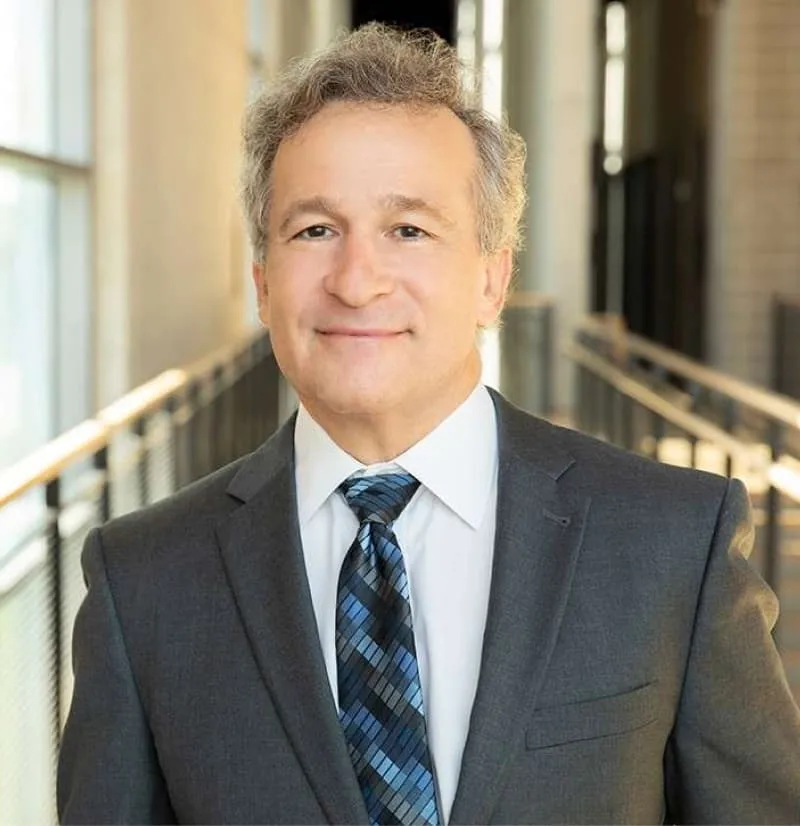Most Boards of Medicine take a draconian view towards sex with patients. If a complaint is filed, and the sexual relationship began in the middle of a doctor-patient relationship, discipline likely will ensue. The interpretation is absolute.
With most crimes, guilt/innocence and the penalty are defined by the defendant’s state of mind. Very few things in the legal world are absolute. Premeditated murder is different than heat of passion manslaughter, even though in both cases, there’s a dead body.
There are some exceptions in criminal law to the state of mind requirement. That is known as strict liability. Guilt/innocence and the penalty are defined by the act itself. State of mind is irrelevant. Sex with a minor (statutory rape) is one example. It matters not if the victim looked 25 and gave full consent. In the eyes of the law, if you did the act, you’re guilty. Strict liability.
Lawyers are becoming subject to the same rules are physicians. In California, the long-standing rule was that attorneys could not coerce a client into sex or demand sex in exchange for legal representation. Late in 2018, a new rule was instituted. Even consensual sex between attorneys and clients is banned unless it preceded the professional relationship, or the client is the lawyer’s spouse or domestic partner.
The sex ban proposal was divisive, even though at least 17 other states have adopted a similar ban. Supporters said the relationship between a lawyer and client is inherently unequal, so any sexual relationship is potentially coercive. But some attorneys said the blanket ban was an unjustified invasion of privacy. It also required the state bar to consider whether a client would be “unduly burdened” by an investigation of sexual misconduct if someone other than the client filed the complaint.
Back to physicians.
I understand the blanket prohibition if the patient is receiving some form of psychotherapy or is being treated for a life-threatening condition. There, it is easy to understand that patient is vulnerable and unable to provide meaningful consent.
But what if the patient was seen a single time in an urgent care clinic for a 1 cm laceration that was treated with steri-strips? And let’s say that patient is attracted to the doctor and wants to start a relationship. Is that forbidden? I know some will say formally terminate the doctor-patient relationship first, then proceed.
OK, now assume the patient is being treated for hypothyroidism. The relationship with her endocrinologist will be chronic. Two consenting adults. Still forbidden?
What if the doctor has set up his shingle in a rural area? The universe of available dating opportunities is limited. Is he forbidden from dating a patient? Did he sign up for celibacy particularly when he is providing a valuable service to an underserved community?
What about doctors who volunteer to work at the Antarctic Research Station in the South Pole? No snuggling (with consent) for warmth? No participation in the 300 Club?
Here’s the bottom line.
Sexual relationships with patients are fraught with peril. If the patient feels slighted, he/she can file a complaint with the Board. Being slighted generally means the relationship broke up. If the patient was married, it will be even messier. The patient will make the argument, right or wrong, that you abused the doctor-patient relationship for personal gain. The Board will not be sympathetic to the argument that the relationship was consensual. The relationship may have started consensually, but, if the patient is complaining to the Board, they’ll argue they could not give meaningful consent.
That said, I believe there are shades of gray. With most the examples above, I do not believe they are ethical lapses. I do not believe they merit the charge of unprofessional conduct.
Still, if you want to stay out of the crosshairs, don’t have sex with patients. Period.
If you want to minimize the likelihood of a problem, then formally terminate the doctor-patient relationship and wait. Even that option may not suffice for some specialties – eg: psychiatry.
Or you can marry your patient.
Most importantly, the Board takes action when it receives a complaint. If your patient never files a complaint, then the likelihood of the Board taking action is low. A patient who is not scorned is less likely to take action. Hell hath no fury like a scorned patient. Or something like that. Let us know your thoughts below.
In closing – sex in the workplace is a liability. Especially when the workplace is a medical practice. This is a topic we’ve discussed before on our podcast. We suggest listening to the episode if you haven’t already – in 15 minutes, you’ll learn critical steps doctors can take to protect their staff and their patients from sexual harassment.
Medical Justice is equipped to help its member physicians navigate medico-legal obstacles. At the worst of times, an unexpected challenge may appear overwhelming. And when we are overwhelmed, the temptation to stand still and wait for the storm to pass is strong.
Don’t stand still. Take action. Medical Justice can help you determine what needs to be done to neutralize the problem and protect the interests of your employees and your practice.
Medical Justice provides consultations to doctors facing medico-legal obstacles. We have solutions for doctor-patient conflicts, unwarranted demands for refunds, online defamation (patient review mischief), meritless litigation, and a gazillion other issues. We also provide counsel specific to COVID-19. If you are navigating a medico-legal obstacle, visit our booking page to schedule a consultation – or use the tool shared below.
“Can Medical Justice solve my problem?” Click here to review recent consultations…
all. Here’s a sample of typical recent consultation discussions…
- Former employee stole patient list. Now a competitor…
- Patient suing doctor in small claims court…
- Just received board complaint…
- Allegations of sexual harassment by employee…
- Patient filed police complaint doctor inappropriately touched her…
- DEA showed up to my office…
- Patient “extorting” me. “Pay me or I’ll slam you online.”
- My carrier wants me to settle. My case is fully defensible…
- My patient is demanding an unwarranted refund…
- How do I safely terminate doctor-patient relationship?
- How to avoid reporting to Data Bank…
- I want my day in court. But don’t want to risk my nest egg…
- Hospital wants to fire me…
- Sham peer review inappropriately limiting privileges…
- Can I safely use stem cells in my practice?
- Patient’s results are not what was expected…
- Just received request for medical records from an attorney…
- Just received notice of intent to sue…
- Just received summons for meritless case…
- Safely responding to negative online reviews…
We challenge you to supply us with a medico-legal obstacle we haven’t seen before. Know you are in good hands. Schedule your consultation below – or click here to visit our booking page.
Jeffrey Segal, MD, JD, FACS
Chief Executive Officer and Founder
Dr. Jeffrey Segal, Chief Executive Officer and Founder of Medical Justice, is a board-certified neurosurgeon. Dr. Segal is a Fellow of the American College of Surgeons; the American College of Legal Medicine; and the American Association of Neurological Surgeons. He is also a member of the North American Spine Society. In the process of conceiving, funding, developing, and growing Medical Justice, Dr. Segal has established himself as one of the country’s leading authorities on medical malpractice issues, counterclaims, and internet-based assaults on reputation.
Dr. Segal was a practicing neurosurgeon for approximately ten years, during which time he also played an active role as a participant on various state-sanctioned medical review panels designed to decrease the incidence of meritless medical malpractice cases.
Dr. Segal holds a M.D. from Baylor College of Medicine, where he also completed a neurosurgical residency. Dr. Segal served as a Spinal Surgery Fellow at The University of South Florida Medical School. He is a member of Phi Beta Kappa as well as the AOA Medical Honor Society. Dr. Segal received his B.A. from the University of Texas and graduated with a J.D. from Concord Law School with highest honors.
In 2000, he co-founded and served as CEO of DarPharma, Inc, a biotechnology company in Chapel Hill, NC, focused on the discovery and development of first-of-class pharmaceuticals for neuropsychiatric disorders.
Dr. Segal is also a partner at Byrd Adatto, a national business and health care law firm. With decades of combined experience in serving doctors, dentists, and other providers, Byrd Adatto has a national pedigree to address most legal issues that arise in the business and practice of medicine.





Just a coincidence that this shows up on St. Valentine’s Day, right?
A colleague and friend, a plastic surgeon, has a different but not altogether unique situation.
He and his wife are involved in the ever-expanding world of the swinger lifestyle. They both participate together in sexual experiences with other couples.
On occasion they have encountered a patient who also participates in this consensual sexual lifestyle. Outside of the medical / physician-patient relationship they have had sex with the spouses all present.
What is the ethical consideration there?
The issue of doctors taking part in the so-called “open marriage” or swinger lifestyle encapsulates the “unintended consequences” of giving up personal morality and accepting the Leftist philosophy of atheist materialism completely. This places personal gratification above everything else. Traditionally, medical boards accept as sacrosanct that patients are in a subservient position to their providers and that this must serve as an injunction against “taking advantage of patients in any way, including sexually.”
This seems to be a holdover from moral traditions of the past. Now, patients can sue their doctors, submit complaints against them to medical boards and issue public complaints online. Ultimately, this is real power because it includes the ability to destroy their doctor, even by a false complaint. This is not the position of subservience. An argument can be made that this applies to patients in metro areas where there are greater choices of providers. Perhaps. But we live in a highly mobile society and transportation is readily available. So choice is still available. Patients’ power is greater now than ever in the past. Doctors are subject to an enormous body of regulatory sanctions that limits them in every sphere. There has never been such a shift in history.
Most medical boards look at “moral turpitude” violations seriously. What does this constitute? Stealing from patients? Sleeping with them? Non-payment of taxes? Failing to keep a clean facility? DUI’s? There is a huge palate of definitions. Presumably anything that risks quality of care is on the table.
It seems to me that Medical Boards need to re-define their role. If they intend to eschew Biblical morality, then that also comes with allowance for a wide range of actions that were previously forbidden. How will they be defined? You have some Boards that are composed of believers who have a strict construction philosophy, who may be sitting next to a younger doctor who does not believe in anything other than personal gratification. I guess most Medical Boards are pre-selected for older, more conservative members. But this will not always be true. Likely it is changing even now.
Doctors are entitled to have strict definitions of their choices, otherwise this is just a crap shoot. As Leftists atheist materialists gain more power, definitions get wider and wider until they mean virtually nothing. This means that anything is forbidden; and nothing is forbidden. There is a road that provides definition to this. I guess it remains up to each individual what road they will take. Good luck if you believe that this includes everything.
If you screw your patient today, your license to practice may be taken away. If you’re a male attending physician and see a female colleague from your past, a hug at the workplace may land you in trouble. True fact.
I remember as a college student with appendicitis and peritonitis, I thought one of the surgical interns was hot as I lay with fever and NGT in the hospital after open appendectomy . I loved when she made rounds and hoped she would give me her phone number while rounding. Maybe it was the sepsis – or the pain meds:)
We were given a lecture titled “don’t put your pecker in your practice.” Good advice>
Marriage before sex is always the right thing, regardless. That eliminates the problem.
To the author,
Would you find it ethical to have an extramarital affair with a patient of yours for 10 years concurrent with patient care? What about if you briefly dated the patient prior to getting married.
The patient has ongoing care requiring multiple surgeries. You are aware that the patient has pre-existing major depression and anxiety, and have spoken with them about their condition, even offered to write them a disability letter for a different reason, not a valid one, to prevent the patient from having to disclose their mental health condition to their employer.
How would you define whether the patient was exploited? Do you believe that the patient is in a superior position to you, a neurosurgeon, treating them for a progressive disease?
Would examining the patient at home and engaging in sex after be okay? Do you think the patient, given they consented, would not be considered “exploited?” Would the patient’s decisions regarding their treatment remain objective? Do you think that the extent of the relationship could be detrimental in decision-making for either the patient or you, the treating neurosurgeon?
How do you determine if their was exploitation? Would you find the situation problematic, beyond the legal issues? Is it ethical if the physician can silo the relationships?
Can you determine, based on the patient’s consent, that regardless of the length of time and progressive illness, that the sexual relationship, at no point will become problematic from an ethical, not just a legal perspective?
How does a physician determine if the patient is a making informed choices on engaging in sex, and equally importantly healthcare decisions, including major surgery, carrying extensive risk, versus influenced by their dual, intermingled relationship with, say you?
Is it your position that physicians/surgeons are behaving ethically if they think that they are not exploiting a patient?
The question is to elucidate how you determine, beyond a perspective that you convey that the patient is in a superior role with legal issues, but in the context of where the line is drawn ethically, and if there is a blurry line, as noted in your commentary, how you unblur the line?
Also, note that despite the focus on a patient complaint being generated when “scorned” – harm to a patient’s health also can generate a complaint.
Complaints also are generated when a patient realizes that their physician’s judgement was not objective. They are coerced during a major medical crisis, in severe pain, into a surgery they object to, but finally submit to because they are confused to why their surgeon is treating them differently and they cannot stand the pain anymore.
The surgeon dismisses their symptoms, provides vastly different treatment because the patient had realized the sexual relationship was unhealthy for them mentally, but is still a patient. No animosity was conveyed. The patient has no motive beyond their health, but the surgeon’s view of the patient changes, sans sex, and they exclude their patient from decisions, determine to dismiss symptoms, for an unknown reason to the patient.
By dismissing symptoms, the patient is harmed physically by a surgery that was performed based on what the surgeon felt the patient’s symptoms were, fails to perform basic tests because they are so arrogant that they feel they are not needed, which would have been performed by an objective surgeon.
Then the surgical care provided results in permanent damage to the patient’s health, since contraindicated, based upon dismissed symptoms, ignoring comorbid health conditions, and tests not performed, albeit the surgeon already had enough information based on patient’s other tests that performing a two level discectomy above a lumbar fusion, in a patient with pre-existing spinal instability, premature degenerative disc disease due to psoriatic arthritis and collagen defect, and a rotational lumbar scoliotic curve at the levels being operated on. But ignores both patient’s reported symptoms and desire to have an extension fusion, addressing all compressive pathology, and performs the surgery he wants, does not provide informed consent of risks,.
Then the surgery results in patient having collapse of both disc spaces, worsening of stenosis, remoral nerve damage..and still the surgeon dismisses symptoms as being psychological, because they view themselves as superior…although I am sure he will say he felt inferior and remorseful for his behavior when needed.
Then since the patient fails to understand what they did wrong. And since symptoms are continuously dismissed, physician uses patient’s pre-existing mental health condition as a tool to manipulate the patient to question their symptoms..then the patient ends up hospitalized after a suicide attempt because they feel they must be crazy if their surgeon and they thought friend, past sex, invalidates their symptoms, and is in physical pain that is ‘not real.’ And they cannot return to work and suport themselves.
Then even after the suicide attempt, the surgeon performs yet another major surgery on the patient a few months later, in a desperate attempt to save whatever nerves that are either impinged or damaged. And during that time, the patient is asked to sign a document stating no sexual relationship took place, and given at that point, the patient is now completely off balance due to pain, fear of permanent disability, psychologically destroyed, they still are oblivious to the motives of their surgeon.
It takes the patient 9 mos, 2 surgeries and one suicide hospitalization to divulge what took place to someone. That person sheds light on the situation, that the patient failed to appreciate, that the regulation existed and applied to them.
At that point they are horrified that their health was jeopardized because they decided to do what was mentally healthy, to not continue, as a single person, an extramarital sexual relationship with their surgeon, and in turn they are harmed more than they could ever anticipate.
So all that think that patients are not harmed, and complain because they feel scorned, lack insight more than the patient that objective enough to discontinue in long term self harm by engaging in the sexual relationship, but failed to realize that non compliance with sex would end up hurting them even more.
Physicians, I understand that some complaints are generated by scorned patients and/ or wives. But to think that a patient inherently has more power than their physician/surgeon, is a convenient excuse for, at a mininimum, unethical behavior defined by most every medical board specialty; and is delusional.
Patients rely on their physician’s objectivity, and that their health remains paramount to their physician’s self interest.
Some of the opinions/comments posted above are quite disturbing.